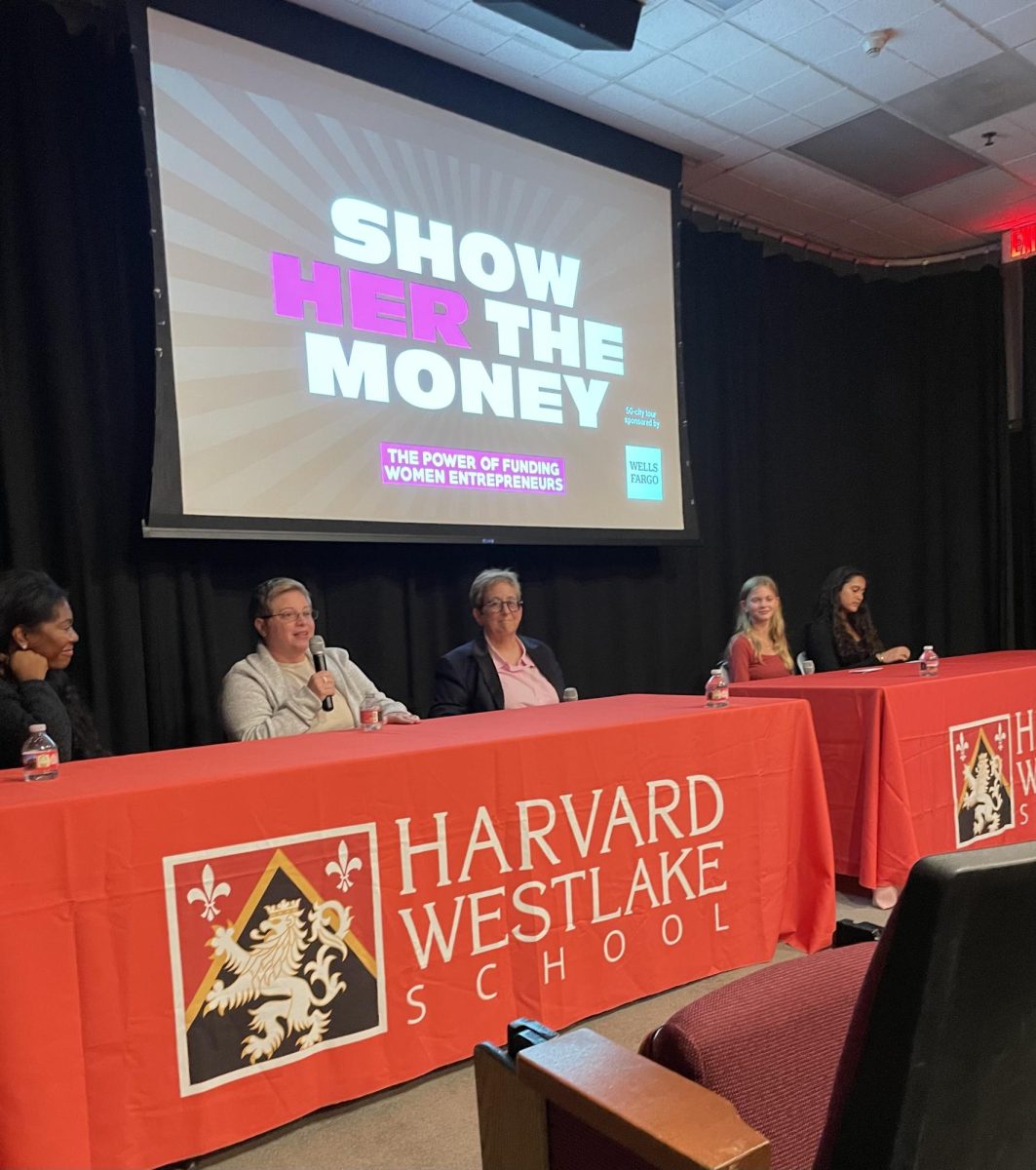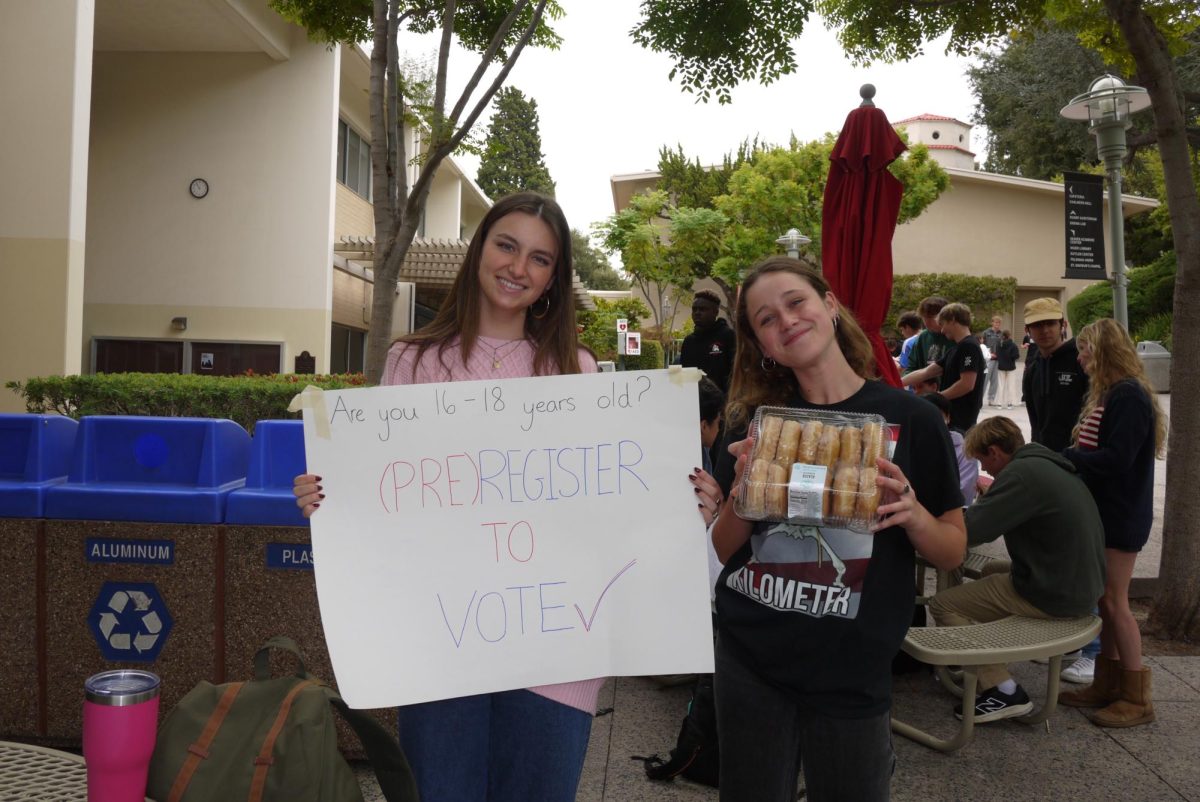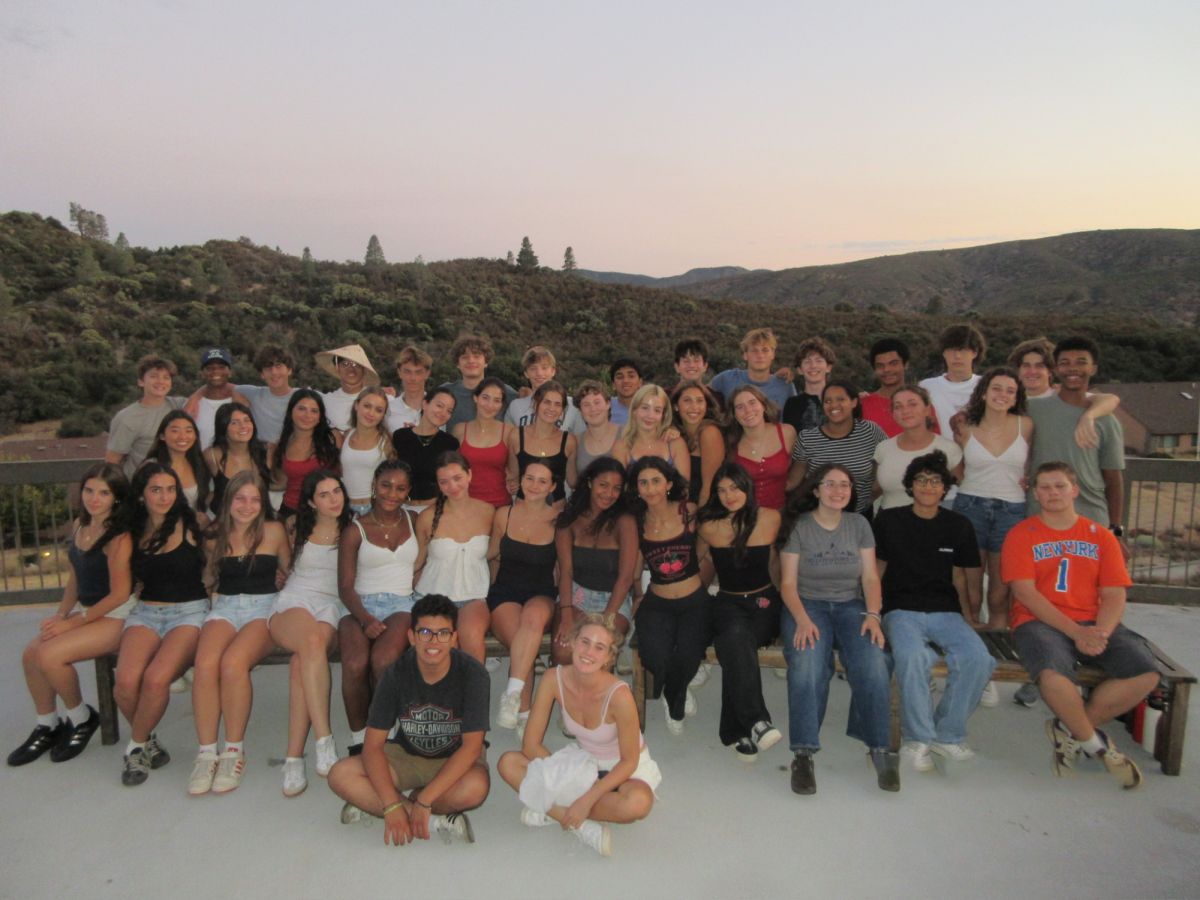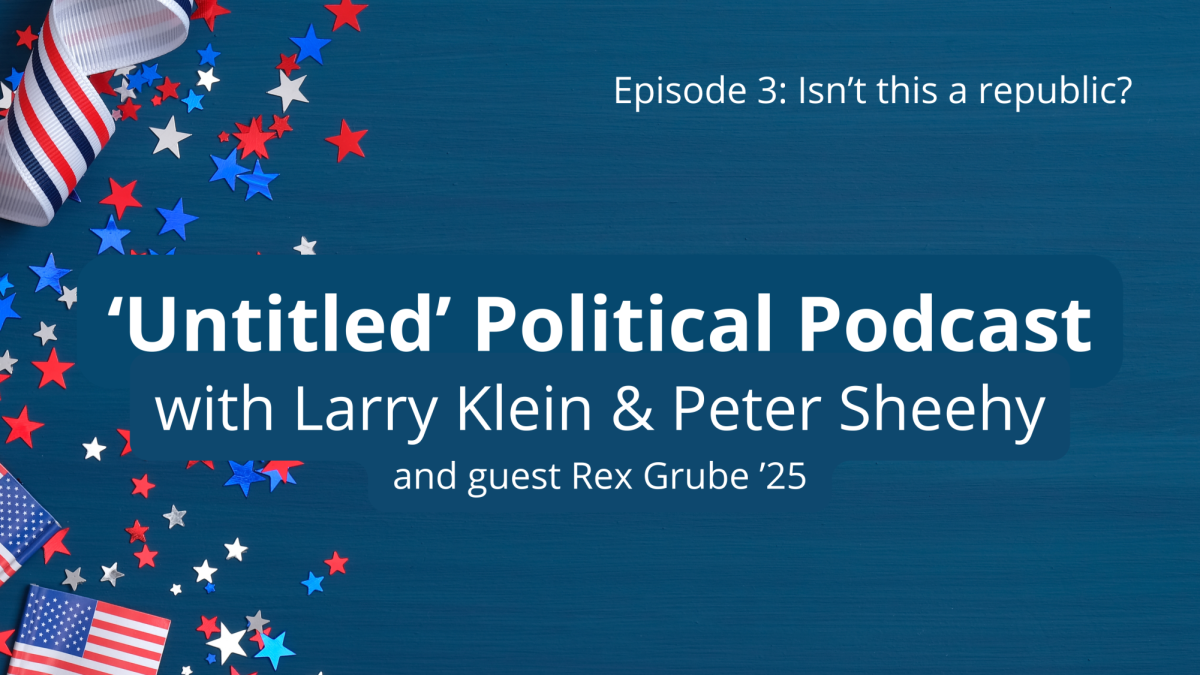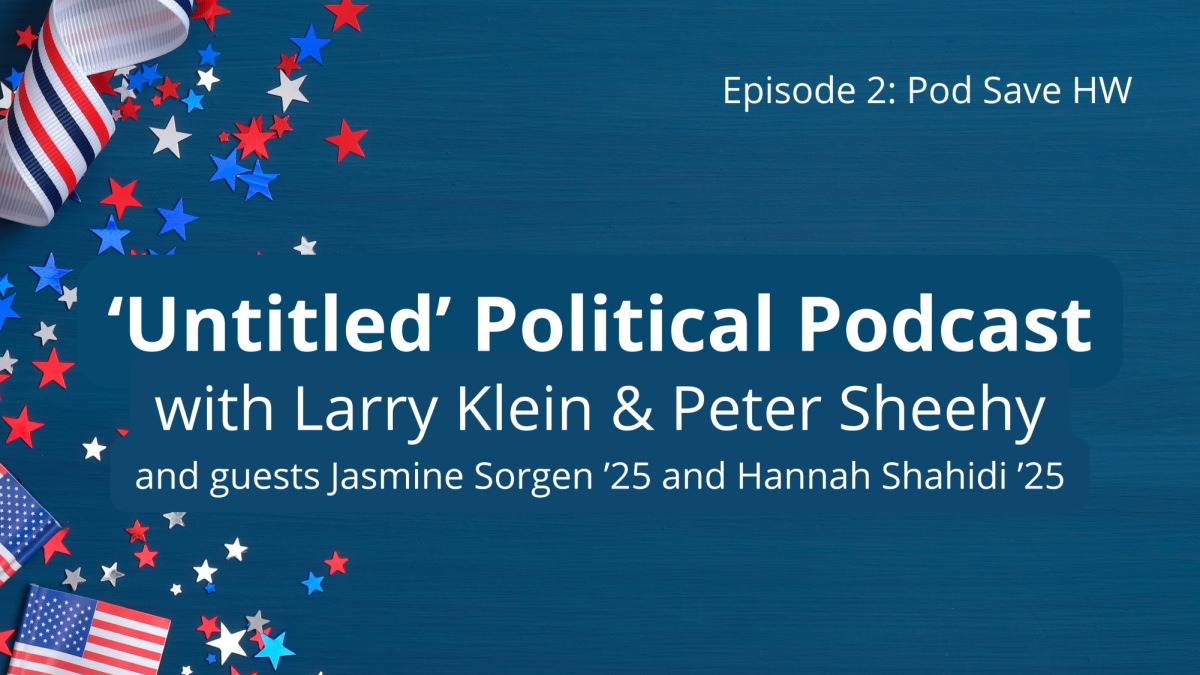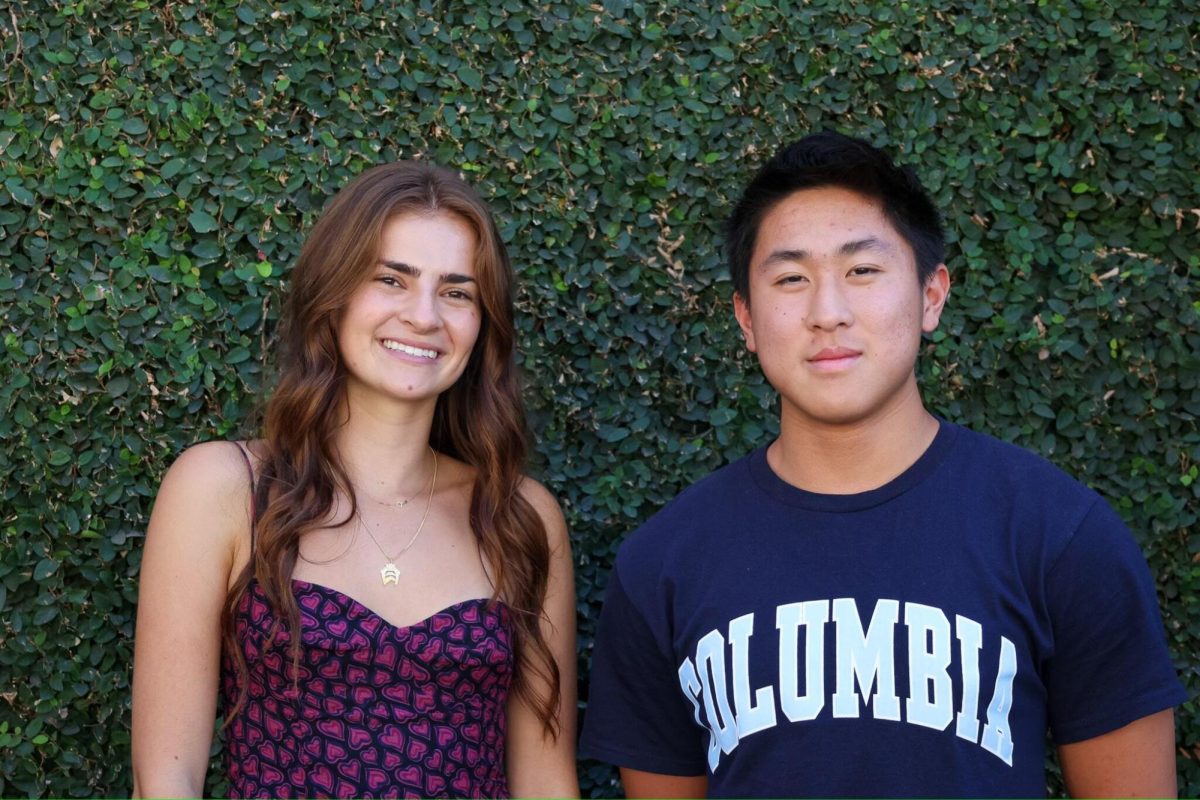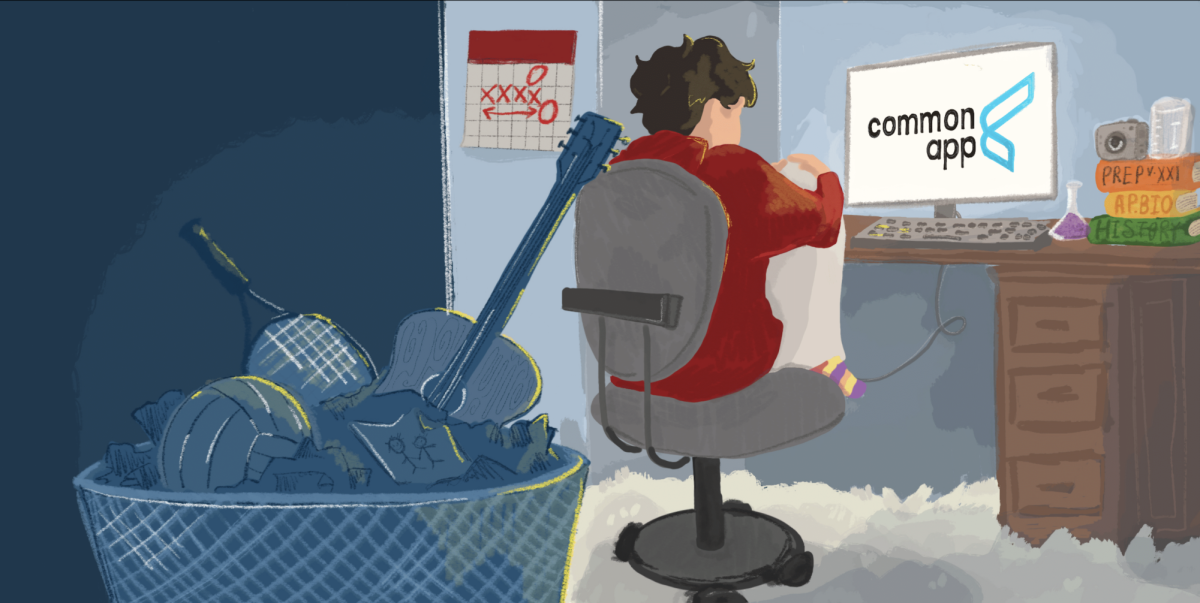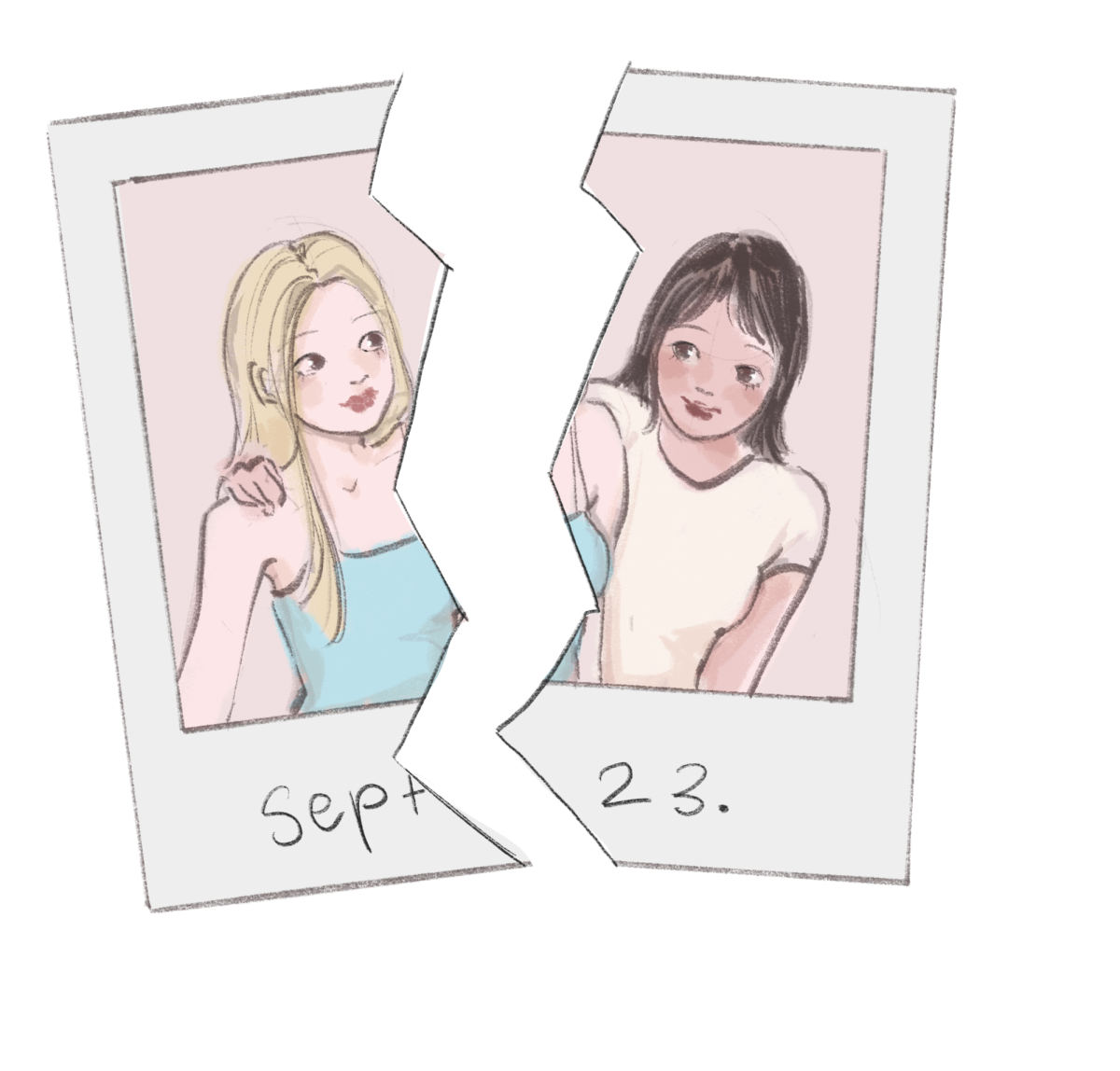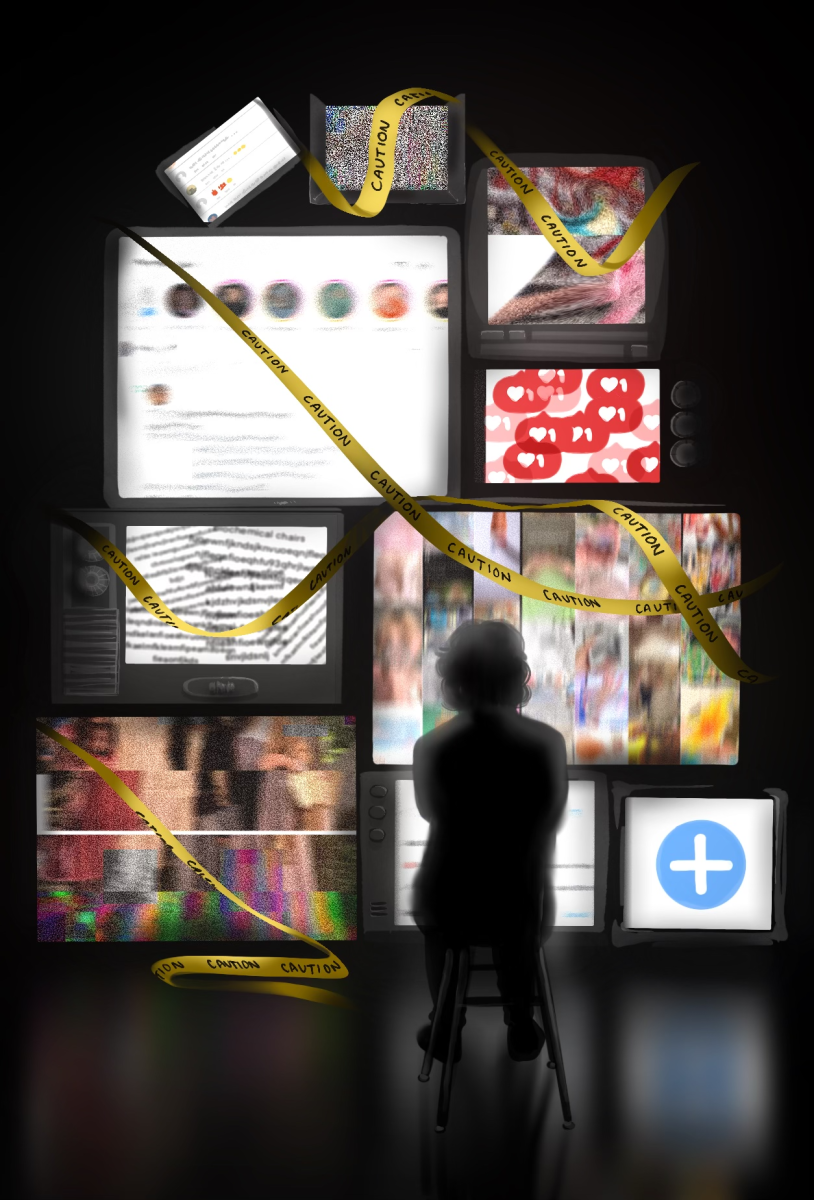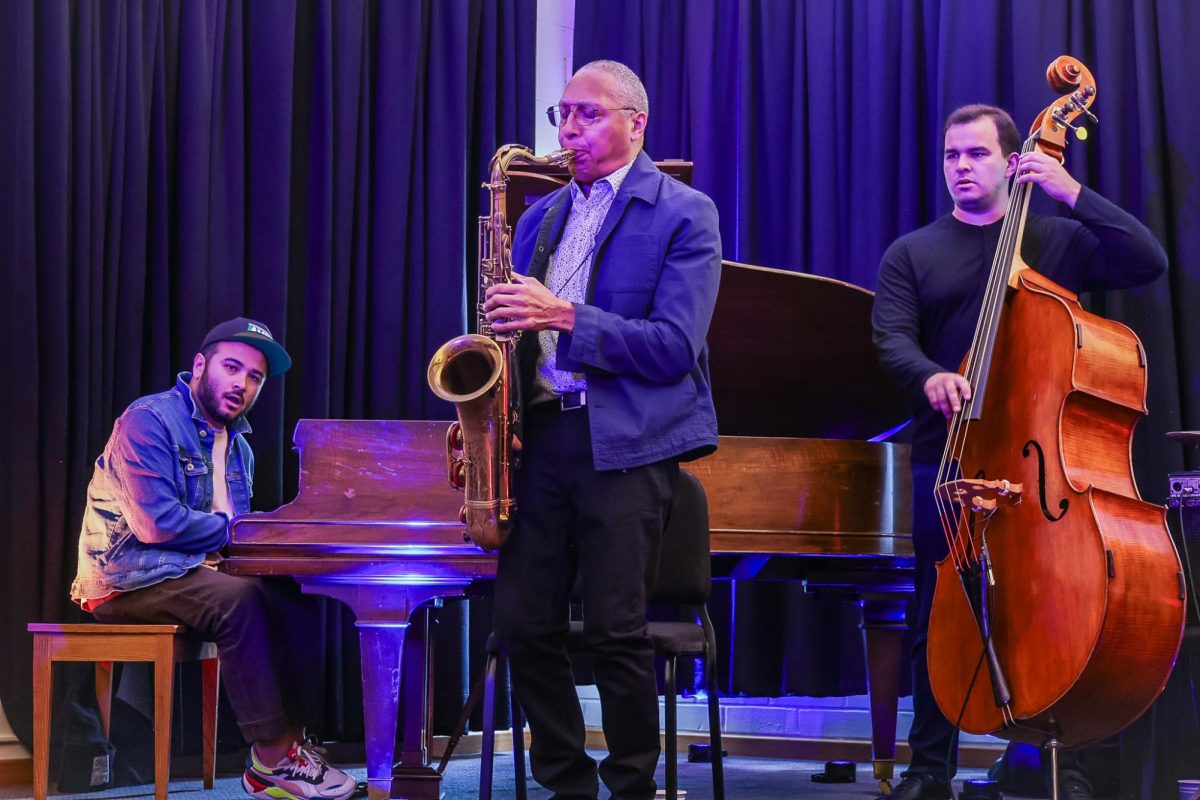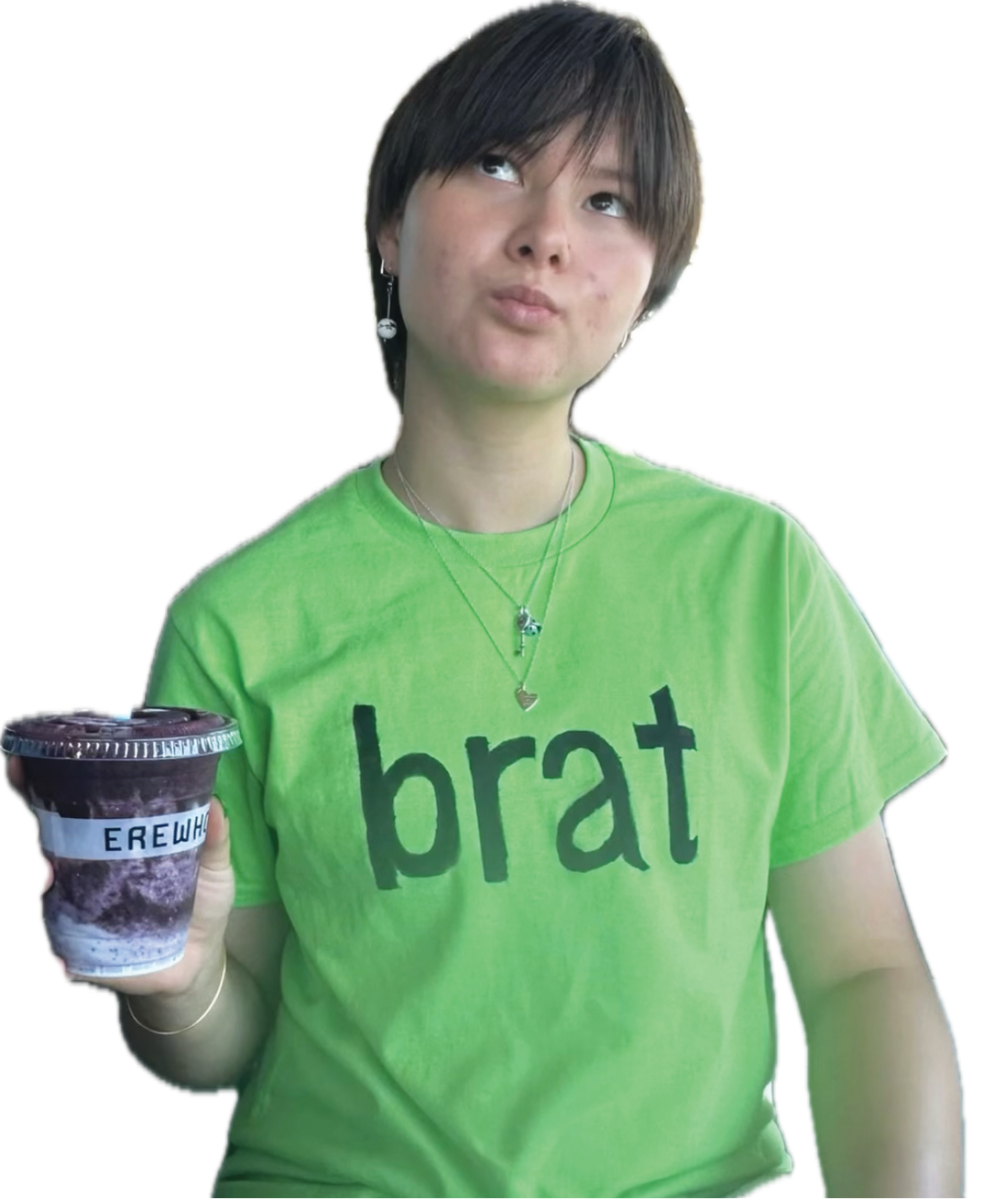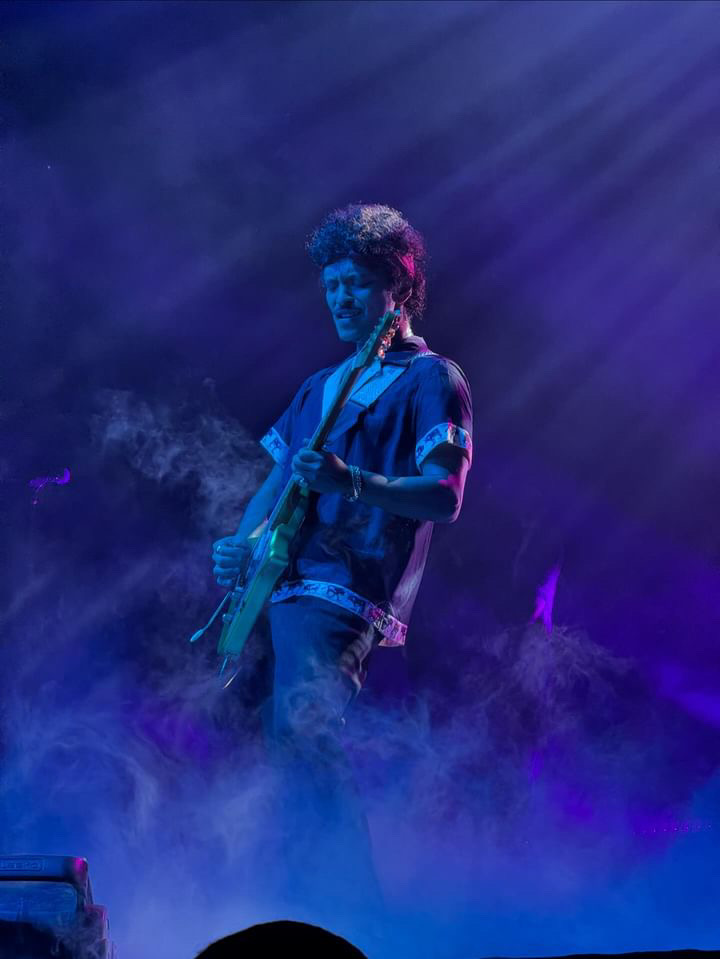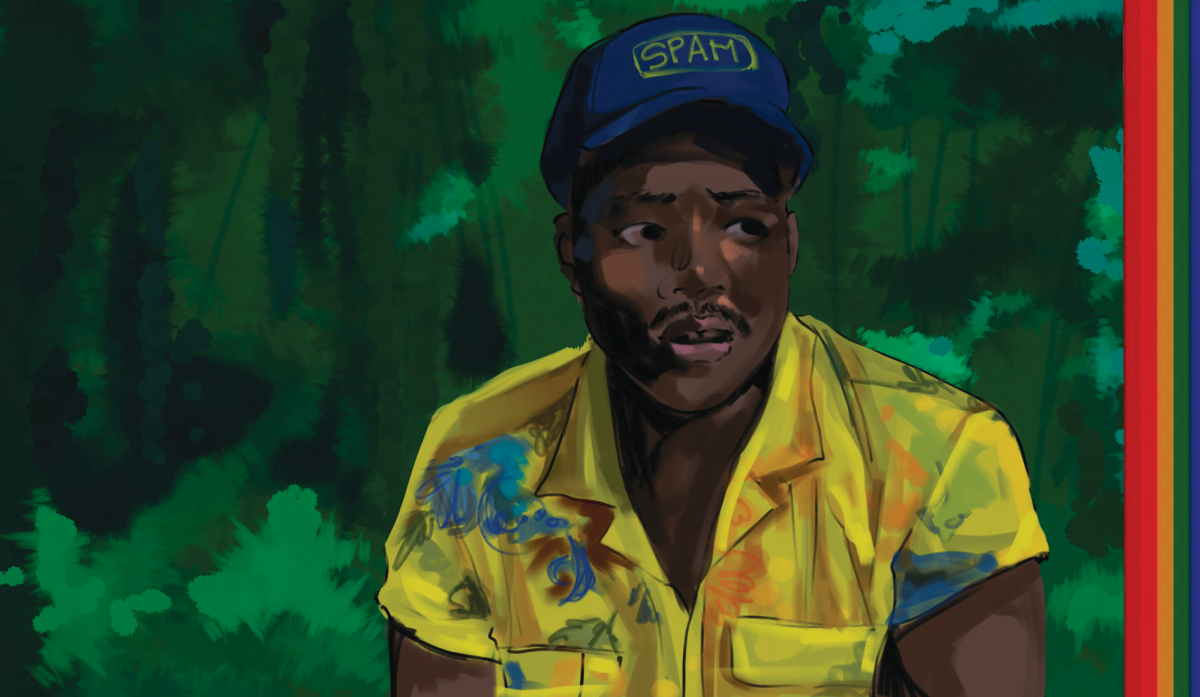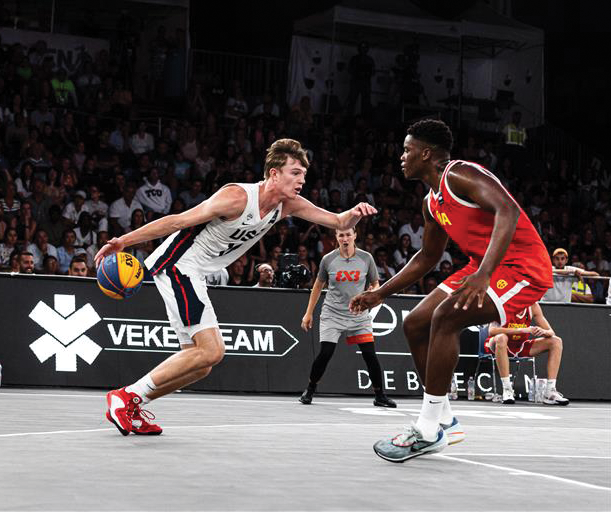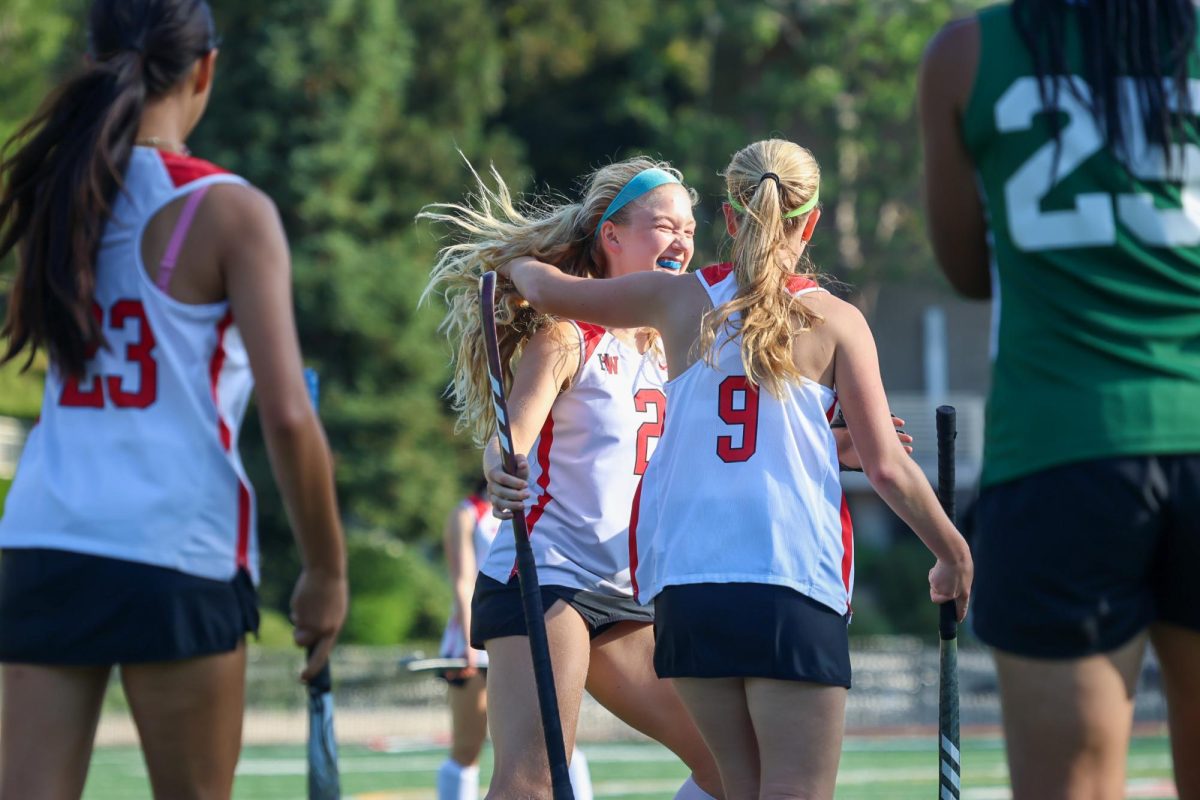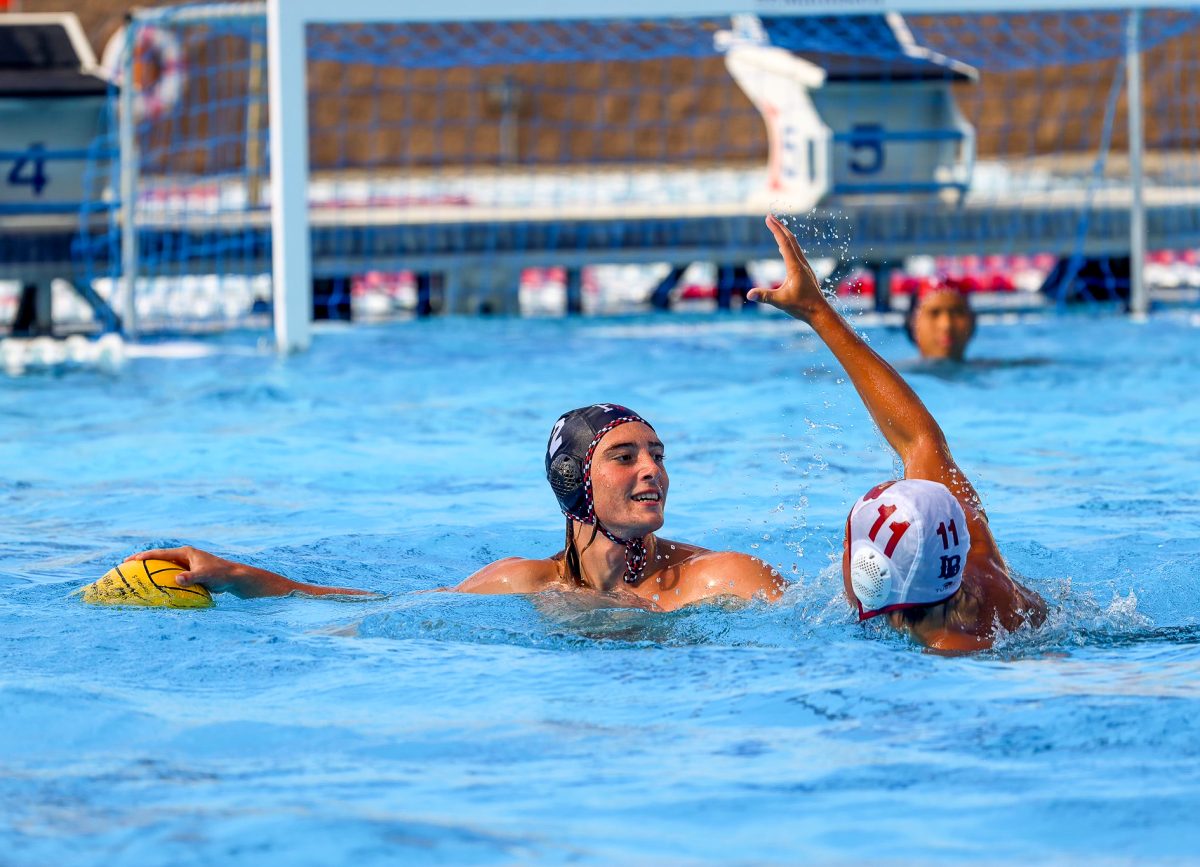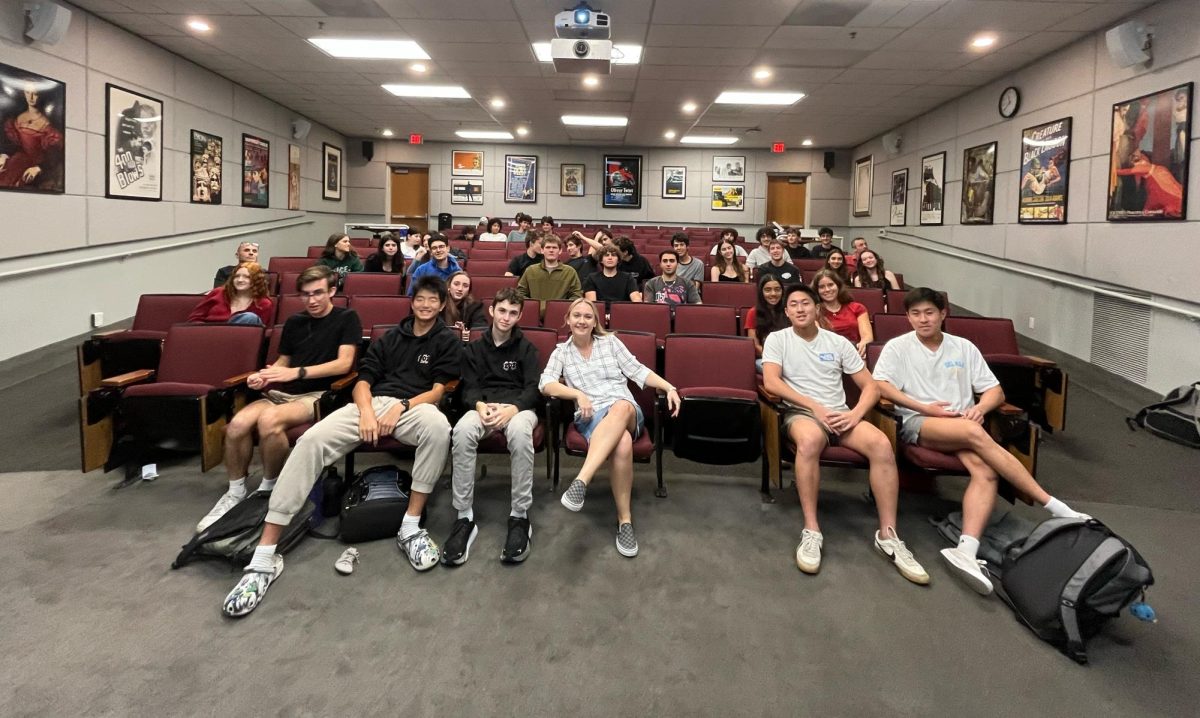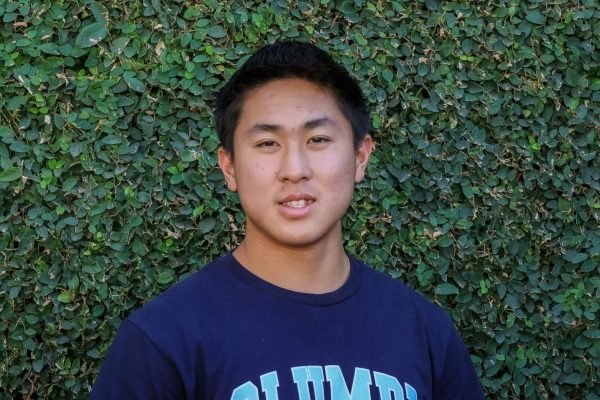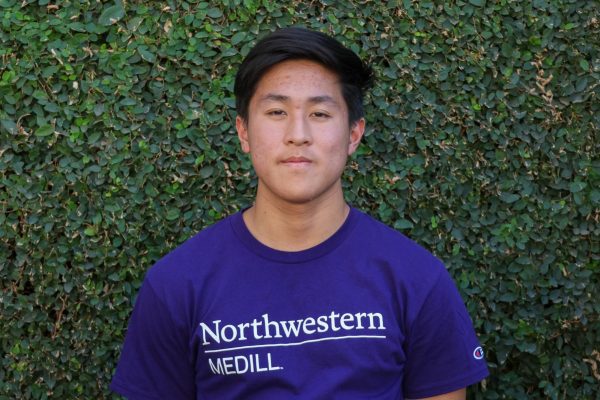Jewish Club and Middle Eastern Student Alliance (MESA) hosted guest speaker Charlotte Korchak in Ahmanson Lecture Hall on Oct. 6 during lunch. Korchak works for StandWithUs, a non-profit organization dedicated to educating people about Israel’s history and addressing anti-semitism.
During the event, Korchak first spoke about the history of the West Bank – the modern-day territory that is locked in conflict between Israel and Palestine. Korchak, who was born in Los Angeles, moved to the West Bank at the age of nine and lived there for a total of 16 years. She spoke about the impacts of terrorism on her childhood in Israel, and how it affected the daily experiences of her and those around her. Korchak finished by discussing the current state of the West Bank, and emphasized the importance of empathy and understanding in the goal of achieving peace between the two groups.
Jewish Club leader Charlotte Newman ’24 said that Korchak’s perspective on the conflict has been holistic, and encourages students to educate themselves on the dispute.
“It’s always good to see people who are very confident in their beliefs,” Newman said. “I think there’s often a problem where people are afraid to say that they’re Zionists because of what people’s preconceived notions are. What I think is so good about Korchak’s way of educating is that she doesn’t shy away from what she believes, but she also doesn’t let [her Zionism] impact her in her education and her teaching to make it biased. She adds that there are problems with everything and that with everything Israel does to protect itself, there are consequences for the Palestinian people. I love that she’s proud of the beliefs that she has, but she’s not overzealous.”
Korchak, who lived in Israel during a surge in terrorist attacks in 2002, said she experienced a close call with terrorism as a child.
“I’m a 14-year-old kid living in Jerusalem,” Korchak said. “I take the bus, and that day, I couldn’t go to the back of the bus, [where I thought I’d be safer in case of an attack]. I was in crutches, so [instead] I sat right behind the driver. We passed by a bus stop, the only bus stop that I know that caters to an [Arab] community. About 10 minutes later, I got a phone call from my father, who already moved back to the United States. I pick up my cell phone, and I hear my father’s voice on the other side of the phone and I say, ‘Hello?’, and he goes, ‘I just needed to hear your voice.’ I said, ‘[Dad] you’re freaking me out, what’s going on?’ He said, ‘Charlotte, there was a bomb on the 32 bus.’ For about 45 minutes my entire family thought that I was dead, because five minutes after my bus drove past that bus stop, a suicide bomber showed up to that same bus stop.”
Newman said Korchak’s stories had a profound impact on her and other listeners.
“It’s so helpful to have a first-person experience of someone who’s lived in the [West Bank] and has a deep understanding of what the history is and what it’s like to live there,” Newman said. “I’ve heard the story before, but it still rattles me to hear all her close calls and friends who were killed in terrorist attacks. To hear that [Korchak’s stories] impacted [students] makes me not [only] happy, but really grateful because they make [anti-semitism] more real to non-Jews, and to Jews who haven’t heard her story before. Having a real-person connection makes these stories less about who’s right and wrong in the situation, and more about how this impacts real people’s lives.”
Korchak said her experiences have taught her that the two sides mainly want to exist in peace, and a greater understanding of the conflict will prevent further hate and violence.
“I learned that there are good people everywhere, and there’s also bad people everywhere,” Korchak said. “I also learned that some people just live in [the West Bank], because that’s where they were born. The day that we learn to understand each other is the day that [territory] won’t be an issue. We can both live side by side in two different countries peacefully, or in whatever formula that the Israelis and the Palestinians come up with, but that starts with more understanding. That’s going to minimize the hate. That’s going to bring about a solution much faster, which will probably take a couple generations, but hopefully, we’ll get there.”
Korchak said the multicultural groups at the school have an obligation to educate members of the wider community in order to reduce misunderstanding and hate.
“[Students] are blessed to live in a place that’s so multicultural,” Korchak said. “Attending other people’s clubs and events allows Jewish students at this school to help other people to understand who Jews are. My firm understanding as an educator is that the more you understand somebody, the less you’re going to hate them, but so much of what we describe as hatred is oftentimes really not hatred. It’s just misperception, xenophobia and ignorance. Affinity groups can really push against that ignorance and educate to the point that there is less hate, more love and [ultimately] a greater ability to really embrace each other and understand each other.”

